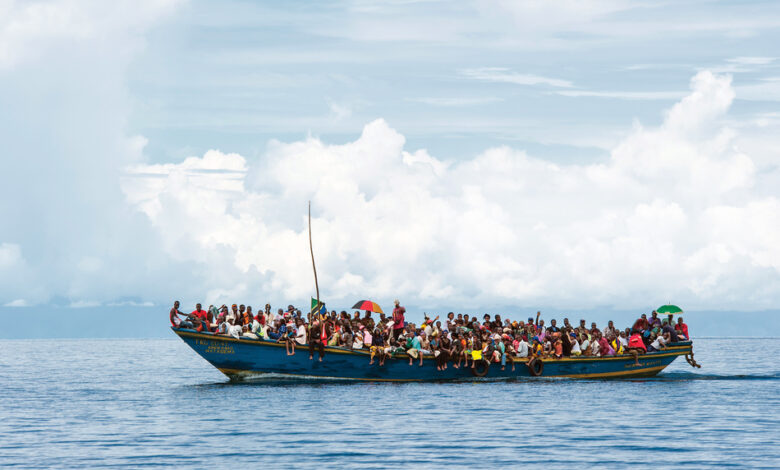Communal Clash Between Twa And Bantou Clan Displaces Many Villagers In DR Congo
The conflict between the two groups is dated many years back and is based on their inability to co-exist peacefully.

A renewed communal clash between the and Bantou clans in Tanganyika province of the Democratic Republic of Congo has displaced many villagers from their home.
Alexis Kayembe Katempa, Vice President of the Tanganyika Provincial Assembly said on Friday, May 14, “the situation is catastrophic in Tanganyika”.
“There is insecurity in the littoral south of Lake Tanganyika where entire villages are being deserted,” she added.
According to her, the affected villages are Musipi, Mala, Mufaume, and Katombwo.
“All the displaced persons from these villages who have been arriving by fishing boats from Kamukolo Bondo have been pouring into Kalemie town, escaping from insecurity between Twa and Bantous in their respective villages.”
Katempa said she has been on the ground to sample the situation first hand by assessing the number of displaced persons in the sites provided for them.
She was accompanied by Natascha Mulange Mpundu, provincial Minister of Health and Humanitarian Affairs of Tanganyika.
The Vice President of the Tanganyika Provincial Assembly said the relevant technical services are on the ground to give the exact figures of internally displaced persons who have arrived in Kalemie.
“We have the obligation of identifying all the persons who have arrived here. I am busy with the technical services which are working to give us the global figures of these displaced persons,” Katempa said.
The parliamentarian and provincial minister have since visited some of the displaced persons, including 15 wounded ones who are receiving treatment in the Kalemie Reference Hospital to ensure they are being well taken care of due to their serious situation.
The Non-governmental Organisation (NGO) “Kongo News” that operates in the Katanga region has warned of the risk that these new conflicts between the Twa and Bantous could spread to Kalemie which has been hosting the internally displaced persons.
Conflicts between the Twa and Bantou communities have been going on for several years.
The conflicts are based on the difficulty of cohabitation between the two peoples. Several roundtable conferences have in the past been held in the Tanganyika provincial chief town, Kalemie, to search for ways and means of curbing the inter-ethnic violence.
A one-time interior minister of Tanganyika, Yumba Kamona, had advised that social actions with a visible impact on the living conditions of the populations be initiated because the violence is sparked off by extreme poverty among the populations.
Support Our Journalism
There are millions of ordinary people affected by conflict in Africa whose stories are missing in the mainstream media. HumAngle is determined to tell those challenging and under-reported stories, hoping that the people impacted by these conflicts will find the safety and security they deserve.
To ensure that we continue to provide public service coverage, we have a small favour to ask you. We want you to be part of our journalistic endeavour by contributing a token to us.
Your donation will further promote a robust, free, and independent media.
Donate HereStay Closer To The Stories That Matter




